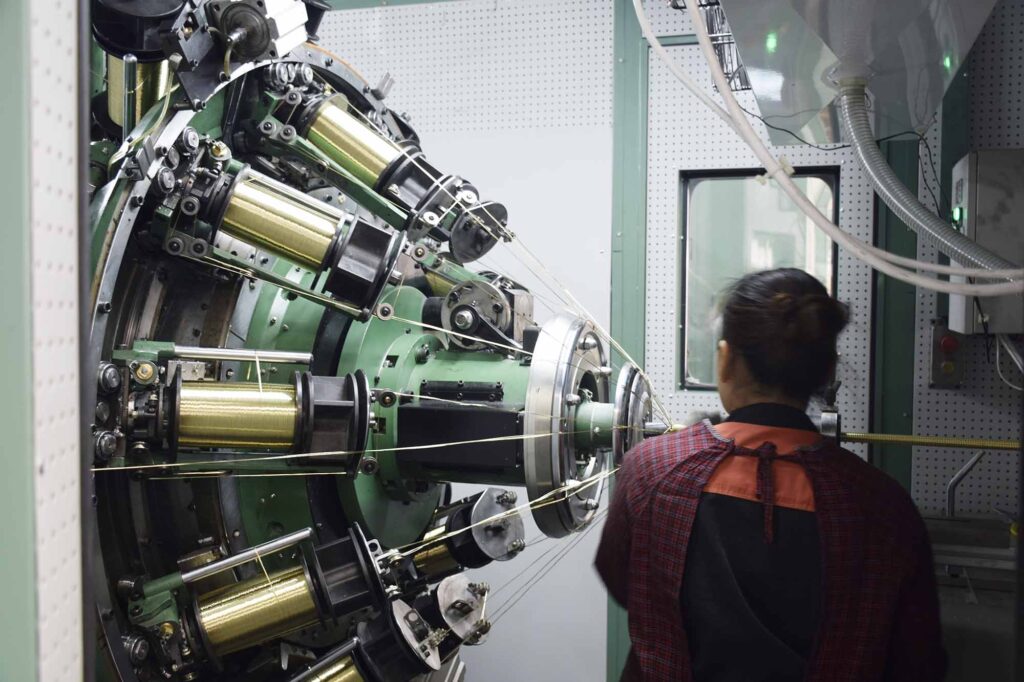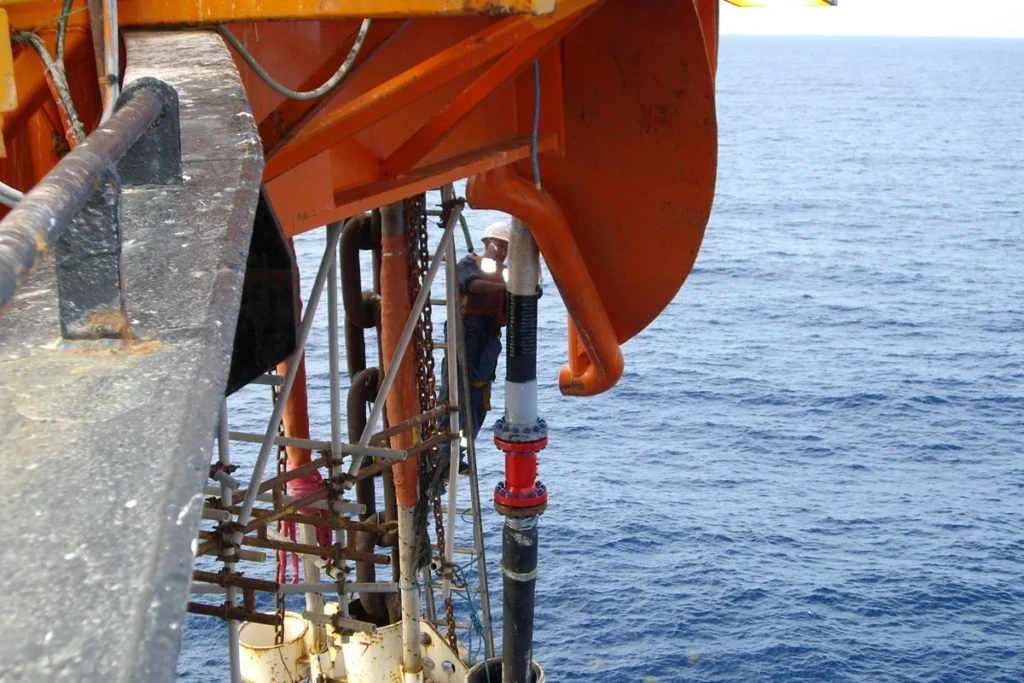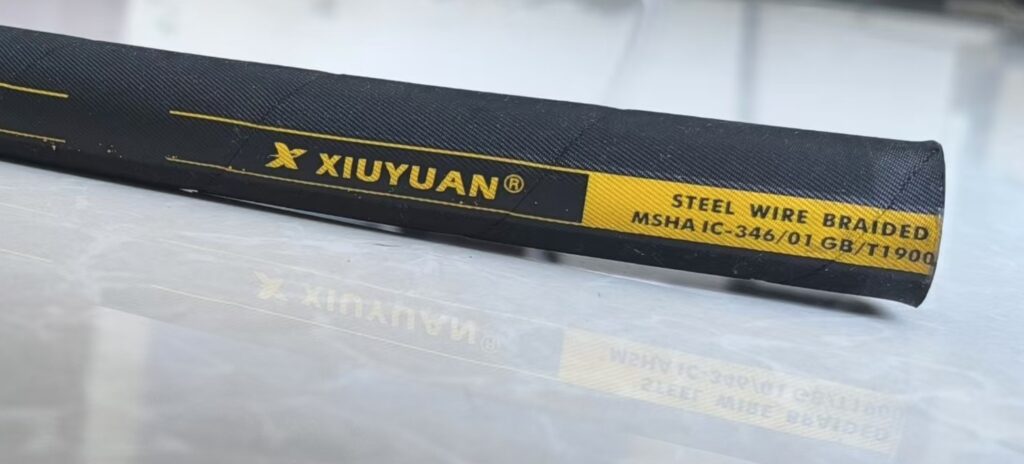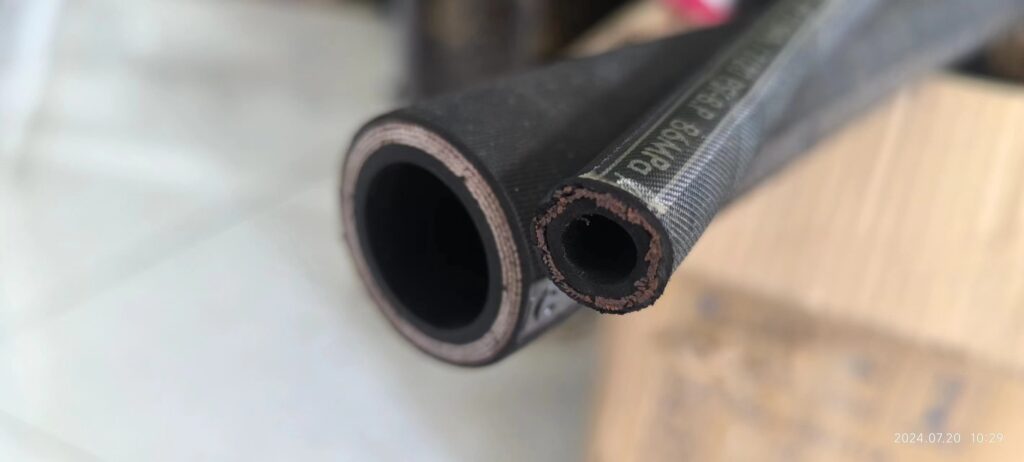SAE R5 is a specific type of hydraulic hose that is designed and specified by the Society of Automotive Engineers (SAE). It falls under the SAE 100R5 hydraulic hose standard, which outlines the requirements for textile-covered, medium-pressure hydraulic hoses used in various automotive applications.
Key features and characteristics of SAE R5 hydraulic hoses:
Textile Covering: SAE R5 hydraulic hoses are reinforced with a single textile braid and covered with a textile-impregnated, oil and weather-resistant rubber outer layer. The textile cover provides protection against abrasion and is suitable for applications where a textile outer layer is preferred.
Medium Pressure: These hoses are designed to operate at medium pressure levels. The working pressure typically ranges from 500 to 1,200 psi (pounds per square inch), depending on the hose size.
Temperature Range: SAE R5 hydraulic hoses are suitable for a wide temperature range, generally from -40°C to +100°C (-40°F to +212°F). This allows for reliable performance in both high-temperature and low-temperature environments.
Compatibility: SAE R5 hoses are compatible with various hydraulic fluids, including mineral oils, glycol-based fluids, vegetable oils, and synthetic ester-based oils. However, it’s essential to check the specific hose specifications for compatibility with the intended fluid.
Application: SAE R5 hoses are commonly used in medium-pressure hydraulic systems, especially in the automotive industry. They are often found in applications such as power steering systems, air brake systems, engine oil lines, and other systems where medium pressure hydraulic connections are required.
Fittings: SAE R5 hoses typically use reusable or permanent crimp-style fittings. These fittings provide a secure connection between the hose and the hydraulic components.
As with any hydraulic hose, it’s crucial to follow the manufacturer’s recommendations and industry standards when selecting and installing SAE R5 hoses. Proper installation and regular inspection are essential to ensure the safety and reliability of the hydraulic system.
Please note that standards and specifications may change over time, so it’s always best to refer to the most current version of the SAE 100R5 standard or consult with a reputable hydraulic hose supplier for the latest information.





